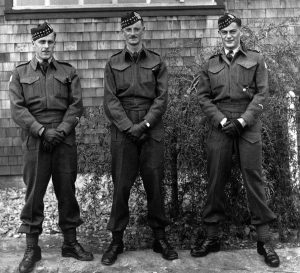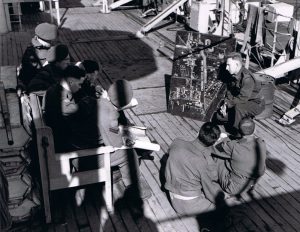
The other day, I needed to get an identification card replaced. The transaction required a password entry. Do you think I could remember it? I kept drawing a blank. Frustrating! If you’ve ever been around me when I can’t remember or have to create a new password, you’ll hear me repeat:
“If I were king of the world, I’d have all passwords eliminated!”
Of course, passwords are important. With all the identity fraud out there and criminals scamming innocent people to break into their credit or bank accounts, I get it. But should I lose sleep overnight that someone might discover the password to my union membership, my air points card, or my historical society profile?
That’s not security. That’s paranoia, at least, and inflated self-importance at worst.
And the paranoia goes deep. How many times have you heard this mantra from bank tellers, credit card companies, government civil servants, librarians, police officials and even retailers? “Make sure you create a password that’s at least eight characters long, with a number in it, and an uppercase letter, and a special character.”
As one Reddit user noted: “Sure, I did all that, and then their server gets hacked and 30 million passwords are stolen. Why bother?”
I know, I know, it’s a First World problem. But just for the record, I have a timely story to tell. About 25 years ago, I met a retired federal civil servant in Ottawa. Reg Weeks, among many foreign assignments in the 1960s, worked at the Canadian embassy in Washington during the U.S. presidency of John F. Kennedy.
That in itself could probably have triggered a fascinating book of Canadian Cold War history. But at the time, I was interested in Weeks’s experience during the Second World War. It turns out, he helped to keep the biggest military operation of the Second World War a secret.
“In the spring of 1944 (exactly 80 years ago), people could only speculate about D-Day,” Weeks said, “where it was going to happen and when. They could speculate. But we knew.”
A few years prior to the Normandy invasion, student Reg Weeks (originally from the U.K.) was studying at Tabor Academy in Massachusetts in the U.S. Not surprisingly, he ran out of money and hadn’t sufficient funds to get home to Britain.
With the war underway, he figured the quickest way home was to cross the border into Canada, join the Canadian Army (Canada had been at war with Germany for a year) and get posted overseas to defend Britain against a potential Nazi invasion in 1940.
Not long after he enlisted with the Lorne Scots Regiment in Ontario, his commanding officer noticed Weeks’s education dossier and decided how Pte Weeks should serve the war effort in a vital way.
“He didn’t send me home to Britain,” Weeks said, “but exactly the opposite direction, to Gordon Head on Vancouver Island to become an intelligence officer.”
By 1943, Weeks was a lieutenant in Canadian Army Intelligence and posted overseas, to a clandestine enclave on the Isle of Wight off the south coast of England. Leading up to D-Day in 1944, his job was to supply the maps to Canadian troops for their planned landing in France.
Even more important than the maps themselves, however, was to keep the entire operation a secret – not only from the Germans, but from the Allied troops as well.
“We drew up maps of Normandy showing the shoreline, topographical features, German gun emplacements, everything,” he said, “except for the actual place names.”
Then, Weeks drew up a second set of identical maps with all the same features, but with the place names added. That set of maps would only be revealed from sealed top-secret pouches when Operation Neptune to transport 150,000 Allied troops across the English Channel to France had begun.
So, with Weeks’s maps complete and with D-Day anticipated for June 5, he had the secret maps locked (in washrooms) aboard Royal Canadian Navy ships. As we know, bad weather forced Gen Dwight Eisenhower to postpone the D-Day landings at least 24 hours.

Weeks had to retrieve all the maps until a new date was set. I remember asking Reg Weeks how he managed to keep the lid on D-Day for 24 hours.
“I actually thought they’d postponed D-Day just to test my staff’s efficiency at keeping the maps secret,” he told me.
I never thought to ask him if they used passwords for access to the secret D-Day maps. Apparently, the future of the Free World was not dependent on a high-tech password, but on the efficiency of the locks on those navy washroom doors.
I would very much like to get in touch with Ted Barris.
My Dad’s WW I story is amazing & should be published. I have what happened to him, in his own words on a DVD. I typed it out for the Ontario Genealogical Society & they published it in their newsletter a few years back.
I think Ted Barris would be quite interested in it.
Would you kindly give me his e-mail address?
Thankyou.
Dear Mr Barris:
I was given a copy of Uxbridge Cosmos by a friend and read your column dated May 30, 2024. I would like to thank you and would like you to know my husband Del look forward to reading your books about the military. I would like to suggest you send a copy of this column to those Senators who signed that petition(perhaps you have already thought of doing this) It might not make a difference but maybe some other American might see it and that would educate one about our service.
Thank you for your time– Margaret Madeley,
P.S.Are you related to Alex Barris?